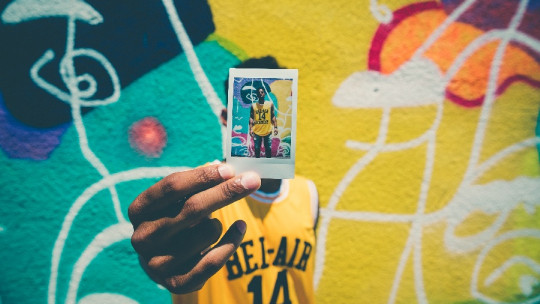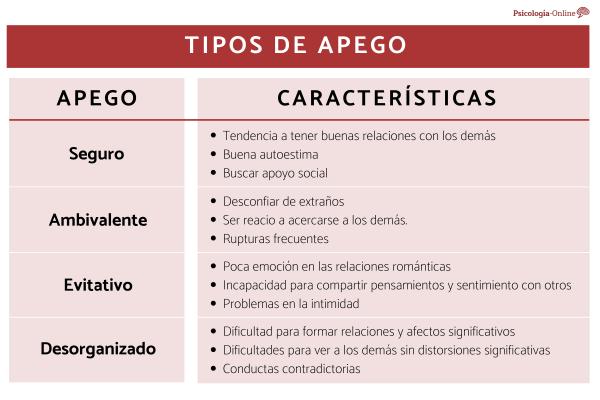Who said that human beings are basically all selfish? Many believe that the tendency to be egomaniacal is common and even has secure scientific bases, but the knowledge that comes from all psychological, ethological, evolutionary and neuroscience studies shows the opposite. In our relationships there is a rich team of biological predispositions that favor bonds with our peers and encourage us to take care of each other.
This baggage ranges from crying to smiling, from physical contact to kissing, from gestures of consolation to emotional reflection, both in the most immediate forms of contagion and in the most evolved forms of empathy. Therefore, in this PsychologyFor article we are going to discover some tips on how to be an altruistic person
What is altruism
There are many definitions of altruism, sometimes even contradictory to each other. The term derives from the Latin alter, and was coined in the 1930s by Auguste Comte, one of the fathers of sociology and founder of positivism. In his own words, what it means to be an altruistic person is “the elimination of all selfish desires and egocentrism as it calls for a life dedicated to the good of others”.
In general, altruism indicates the attitude and behavior of someone who has the (moral) quality of being interested in the well-being of their fellow human beings, both in the sense of survival and quality of life, members of their own species. or even other species.
This is normally considered a clearly positive quality , as it indirectly improves their chances of survival and well-being. If applied to humans, it is considered a moral quality.

Help with our presence
A way to learn what altruism is be available to help to a relative or friend in difficulty: it is enough to bring them medicine if they are sick, go shopping for them when they are too busy, accompany them to a medical examination if they do not have a driving license. All small things that, however, when done with perseverance and dedication make us more selfless people.
We all have days when we would like to turn off the phone and close out the world; However, doing it too often means you can’t be a stable presence for friends and family when they need your help. Find ways to be present and help the people around you and rely on yourself in times of need.
Listen to others
It may seem trivial, but most of us don’t listen when others talk to us. Whether it is a telephone conversation or in person, most of the time we get distracted by thinking about our own problems and commitments. To be an altruistic person we have to stop and give time to whoever wants to talk to us: participatory listening It also teaches us to be less selfish.
If you want to work on this aspect in your daily life, at Psicología-Online we help you with this article on Active Listening: characteristics, exercises and examples.
Make one kind gesture a day
To learn to be an altruistic person, a useful exercise is make a meaningful gesture every day : give up your seat on a train or bus to a person who is in difficulty, hold the door open and let an elderly person in, smile at a person who is on the street or in a public place and who seems sad. These are small gestures, which cost nothing financially but can mean a lot to the person who receives them.

Give something to whoever needs it
We are not necessarily talking about money, but above all about time and specific help : Whether it is giving away clothes that are no longer used to those who might need them or serving a meal in a community, it is everywhere possible to give a little time to others.
There are really many forms of volunteering and you are not obliged to always guarantee your presence, but doing so when you can not only helps feed our altruistic love it also allows the less fortunate to have something more.
Volunteer
Most associations are happy to receive a service even once, but long for regular, consistent volunteers they can count on to build relationships with clients: reading to children at school, taking the elderly to appointments , translating for medical appointments, tutoring a refugee family, etc. There are endless ways to volunteer, so Identify a need and determine what you can do to contribute
Volunteering is the best way to practice altruism. When you offer your time and skills for free, what you get in return is the gratification of having done your part to help your community. Studies show that volunteering can increase happiness and promote longevity.
Make an unexpected gift to someone you love
Another characteristic of altruistic people is give a gift spontaneously Offering a pizza to a friend, a movie ticket to her sister, a book to her partner are all altruistic gestures, especially if they are done at unexpected moments and not because they are a gift for a specific holiday. An unexpected gift brings joy to those who receive it, but also to those who give it!

Learn a skill and teach it
This simple action unites us with each other in ways that can last decades: it is the superpower of altruism. Sports, stretch mat tricks, chocolate mousse, scriptures, history, gardening, science, rock collecting, making jam, woodworking, doing home repair work, raising chickens, sewing, family history, dancing, calligraphy etc anything is fine. And don’t be afraid to learn something new!
Open your own horizons
Being an altruistic person means having the ability to see beyond your personal concerns and empathize with others, even those you have never met. If your problems and your situation consume you, you will not have the time or energy to be selfless. Having a strong awareness of the world outside your head is the first step to being less selfish and nurturing your altruistic love.
Think about how others feel
Empathy and being an altruistic person go hand in hand. If you understand how a person feels, it will be easier to act selflessly toward them; and you can empathize even with people you’ve never met. Put yourself in other people’s shoes : If you were in the same situation, how would you feel? How would you like to be treated?

Be altruistic even when no one notices
Altruistic people are not kind and generous because they expect recognition, but rather they do it because it is the right thing to do, and because it feels good to help others when you have the opportunity to do so. Donating anonymously is a good way to be generous without needing to get something in return
Take an altruistic person as a role model
Being an altruistic person is not always pleasant, and it usually pays to put the needs of others before your own, but often it is difficult to act in the interests of another when you also have to satisfy your needs. That is why having models of altruism could be of great help.
Take care of yourself
Being altruistic has a high emotional price if you don’t give yourself time to recover your energy If you find yourself always taking care of the needs of others and saying “yes” when you need a break, then maybe you need to take a step back and focus on yourself for a bit. If you are not physically and emotionally healthy, you will not be strong enough to “be there” for others, so make sure you take care of yourself appropriately.
Check out our post How to Love Yourself where we give you practical advice to take care of yourself every day.
This article is merely informative, at PsychologyFor we do not have the power to make a diagnosis or recommend a treatment. We invite you to go to a psychologist to treat your particular case.
If you want to read more articles similar to How to be an altruistic person we recommend that you enter our Personality category.
Bibliography
- Bonino, S. (2012). Altruisti per nature. All the radici of positive sociality. Rome: Laterza.
- Fracas, B. (2020). Come stop altruism. Recovered from: https://www.amando.it/salute/psicologia/come-imparare-altruismo.html








